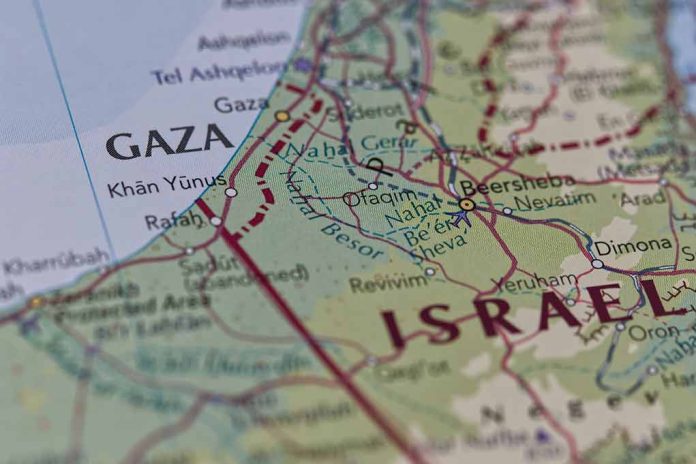
The latest eruption of violence between Israel and Gaza underscores the fragile nature of ceasefire agreements amid mounting casualties.
At a Glance
- Israeli airstrikes in Gaza continue despite a pending ceasefire and hostage exchange agreement.
- 73 individuals, including women and children, have been killed in the recent attacks.
- International concerns rise over potential catastrophic outcomes if hostilities persist.
- Hamas confirms commitment to ceasefire terms amid Israeli skepticism.
Ceasefire Delay and Continued Airstrikes
Despite Israel and Hamas reaching a ceasefire agreement, hostilities persist with Israeli airstrikes causing significant casualties. On the ground, at least 73 people have died in the past day, with severe losses at a residential block in Gaza City. The Israeli Defence Forces continue their operations due to alleged security threats while awaiting cabinet approval for the ceasefire terms amid concerns of potential reneging by Hamas.
Recent Israeli airstrikes reflect a historical pattern where military actions increase preceding a ceasefire. Meanwhile, Hamas asserts its commitment, having relayed official confirmation to mediators in Qatar and Egypt. The situation remains volatile, but diplomatic engagements are ongoing to cement the ceasefire deal.
Humanitarian Crisis and International Response
The heightened conflict has strained Gaza’s medical infrastructure, with hospitals like Gaza City’s Baptist Hospital overwhelmed by high numbers of casualties, posing additional humanitarian challenges. The UN has emphasized the massive reconstruction task awaiting Gaza, with millions of tons of debris to clear following the ceasefire. This effort is crucial to stabilizing the region and facilitating aid access as previously displaced populations are allowed to return home.
Part of the international concerns revolves around potential catastrophic consequences if the conflict continues unchecked, particularly affecting vulnerable areas such as Rafah. Governments and global leaders are urged to support and monitor the ceasefire agreement to avert further humanitarian tolls and establish lasting peace.
Political Implications and Future Prospects
The unfolding events are also stirring political ramifications within Israel. Two right-wing ministers have threatened to resign if the ceasefire proceeds, highlighting potential governmental instability. This internal dissent underscores the contentious nature of the ceasefire agreement and its broader implications for regional politics and security dynamics.
While the ceasefire raises hope, it also evokes mixed emotions among Gaza’s residents, balancing relief with anxieties about reconstruction and future uncertainties. The international community’s active involvement remains crucial to ensure the ceasefire’s implementation and durability, offering a glimmer of hope amid ongoing struggles.
Sources:
- Dozens killed as Israeli strikes continue ahead of Gaza ceasefire
- Gazans express joy and humble hopes after deal is announced — but the violence isn’t over yet
- Updates: Israel and Hamas agree Gaza ceasefire deal to halt 15-month war







